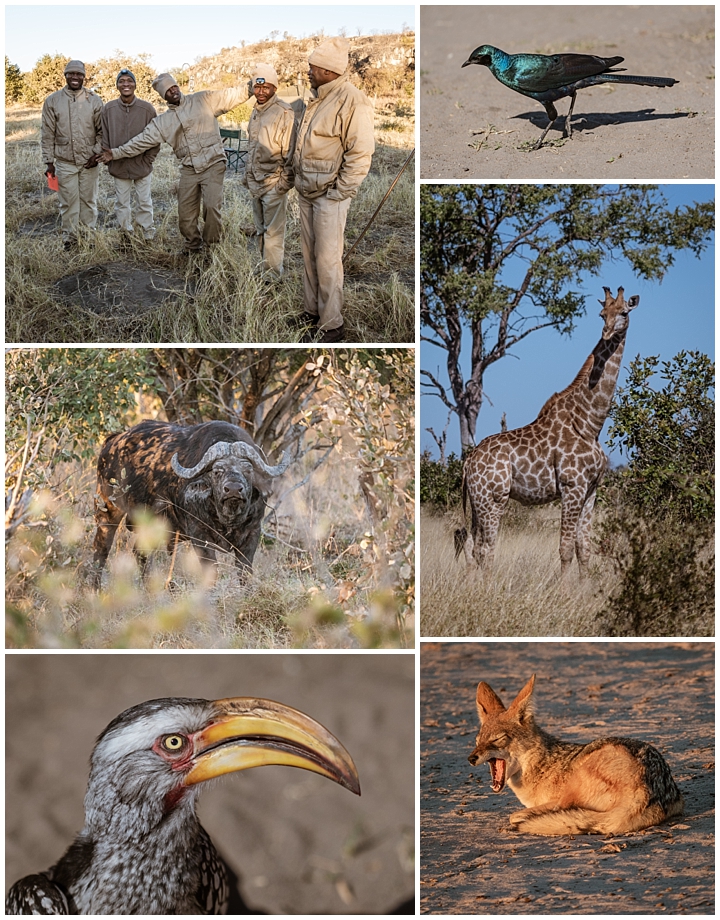
After four game drives in Chobe camp, we were driven to our second camp. Savuti is located along the Savuti Channel on the western side of Chobe National Park and is a private camp of &Beyond. Savuti is known for its exceptional wildlife viewing. We also realized what the pattern of our week would look like. We always arrived at each new camp just after lunch, where the camp support staff serenaded us with a welcome song (upper-left and video at end of this post), handed us a glass of fresh lemonade and a warm towel. After putting our luggage in the tent, we would head out for an afternoon game drive around 4:00 pm, returning back to camp shortly after sundown. The next day would involve two game drives, with breakfast, lunch, a hot shower and a superb dinner. The third day (after two nights in the tents of the current camp), we would do a morning drive in the area, have lunch on the road, and then drive to the next camp, where we would have an afternoon game drive, and start the process anew.
There was no marshland around this camp, so all driving was in our Land Cruiser that we used for most of the week. We are not “birders” and thus do not take very many images of birds. There were so many yellow billed hornbill birds (lower-left) that came close to our lunch stops, looking for dropped crumbs, that we made an exception.
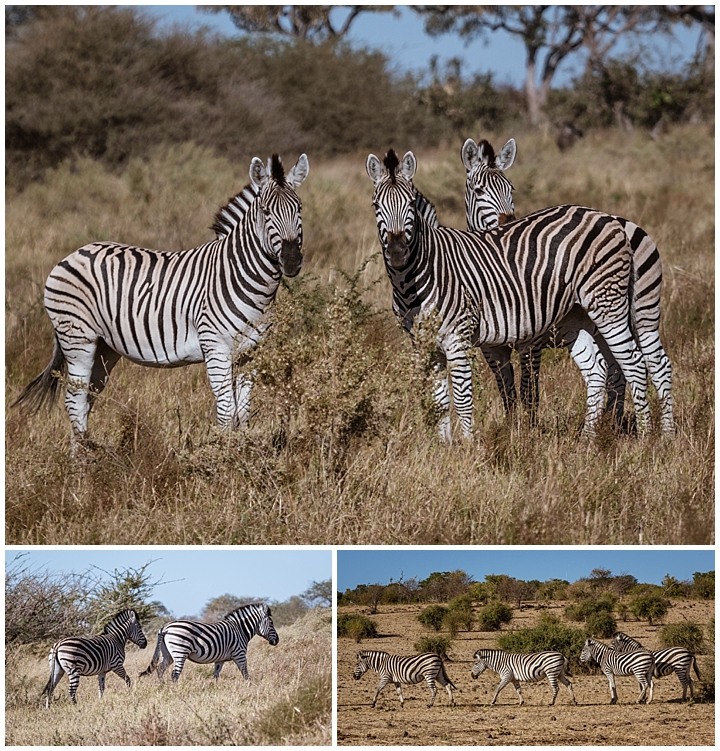
Zebras were more plentiful in this part of Chobe National Park, so spent some time watching several small dazzles.
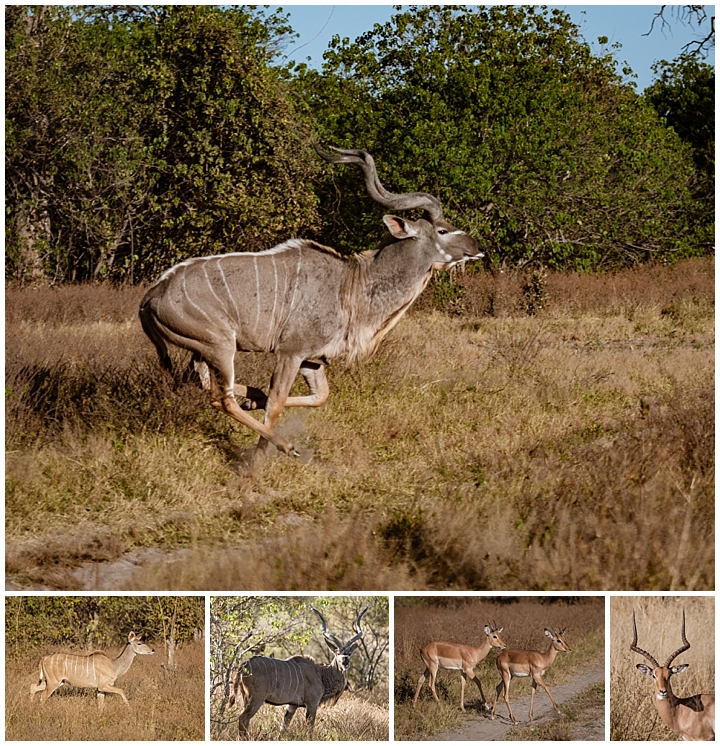
There was more variety among the antelope in this part of the park, and kudu became more common.
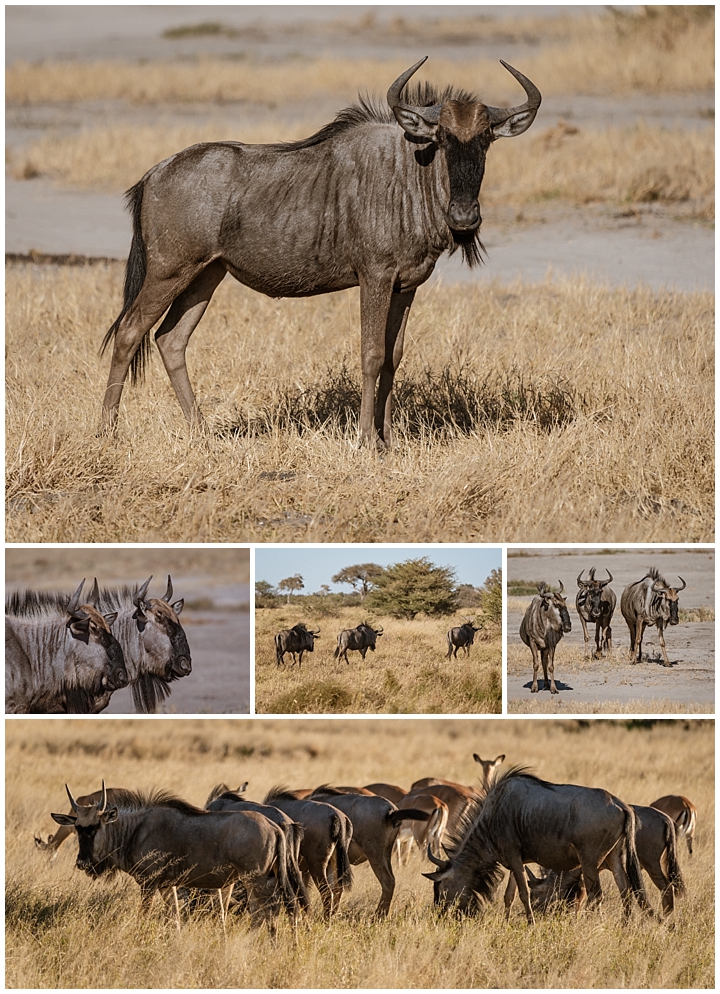
We also saw groups of wildebeests, which are called an implausibility of wildebeest, grazing on the dry grass or just walking casually to their next feeding area.
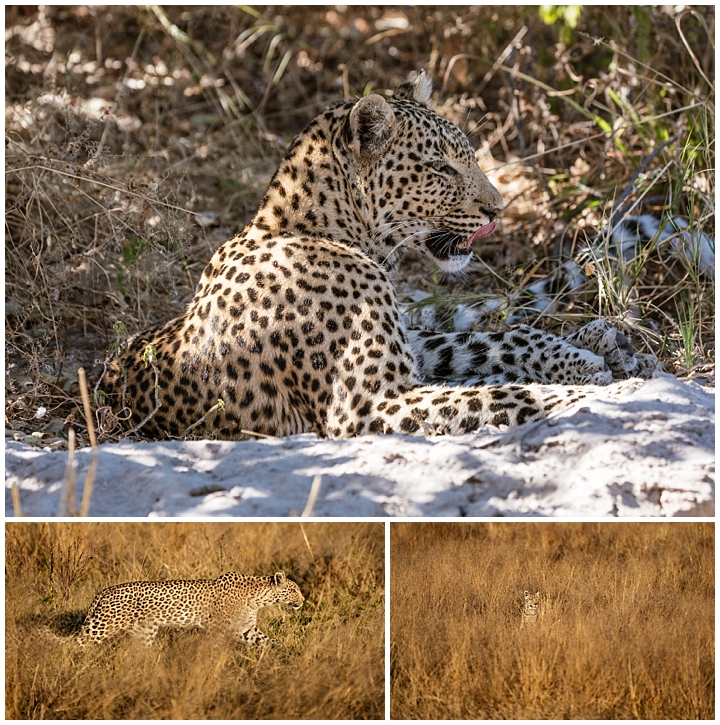
We had our first sighting of a leopard today. We were lucky enough to first spot it lying down on sand in a relatively open area (upper). We waited for awhile to see what would happen, and soon he got up to start to hunt. The image lower-right shows the leopard no more than maybe 50 yards away. Notice how hard he is to see among the grass. His rosette spots on this skin help him to approach his prey more closely before being detected.
By the way, if we had seen a group of leopards, they would have been called a leap. Seems that almost every animal on this continent has odd names when referring to them in large numbers. ☺
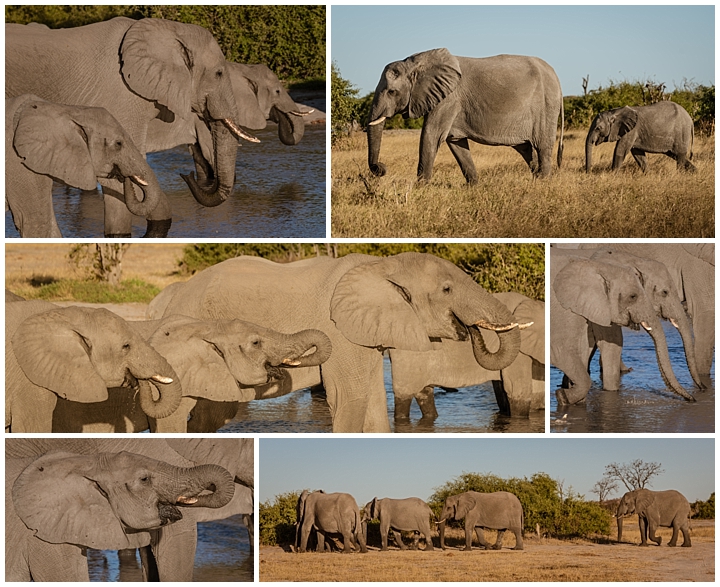
There were also massive herds of elephants (yeah, kinda boring to be called a “herd” after all those exotic names…). We particularly struck it rich while waiting at two natural water holes. More than 100 elephants approached, drank, bathed, and left, while we watched and photographed. The youngest baby elephants were still trying to get control of their trunks to drink from, and they stood in the pool near their mother and tried to mimic the motions.
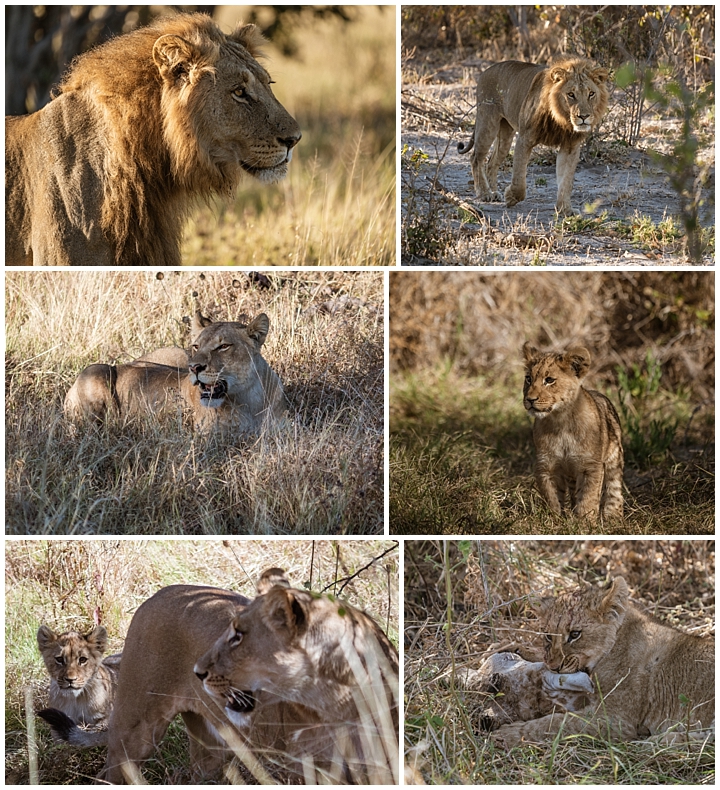
We also saw a couple more prides of lions. At one point, we saw a female lion walking purposely forward, with three cubs in her wake. We followed them at enough of a distance to not disturb their actions. Not long later, she arrived where a male lion (top row) was guarding a fresh giraffe kill.
The kill had been dragged into the brush to hide it from scavengers, while the mother retrieved her cubs. We then watched the cubs eating the giraffe… or at least trying to. The cub teeth were not strong enough to pierce the tough hide of the giraffe neck (lower-right), so there was a lot of frustrated biting and pulling, and then trying elsewhere on the body, until they finally found a spot they could gain access through.
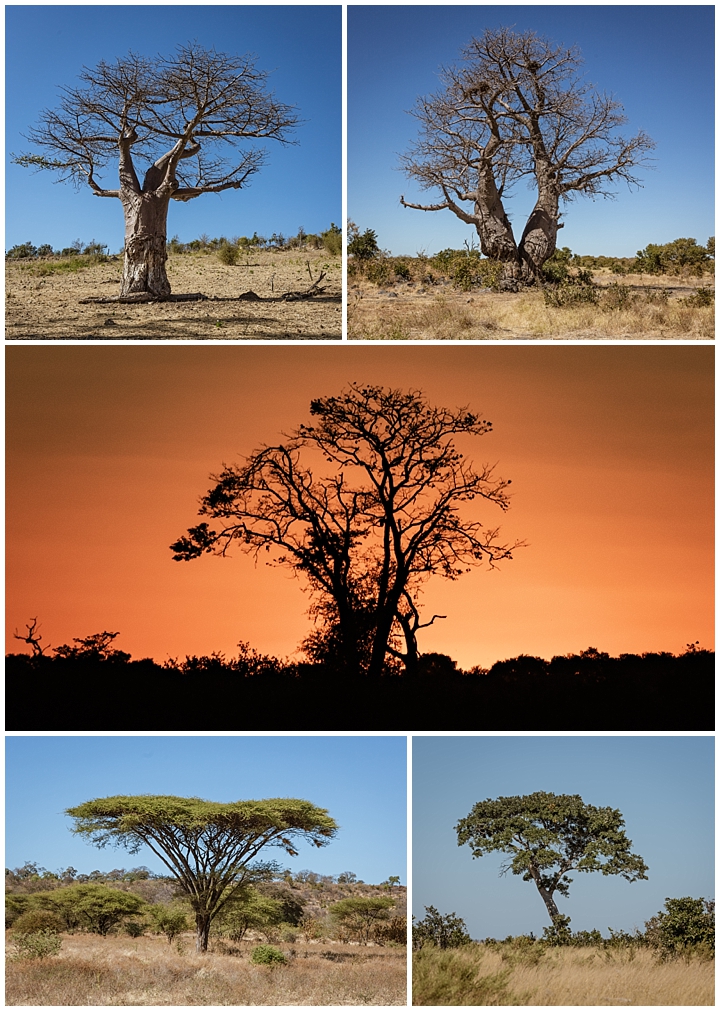
This part of Botswana is desert, with almost no annual rainfall. Thus, most of the plants are barely more than scrub brush. However, the baobab and acacia trees do find root throughout this region, and are representative of Africa.
We were again greeted by the camp staff singing a welcome song to us. Note that there are five support staff shown, plus our driver/guide, for a total of six. (Boesi, Bonno, Charlie, Obi, Kopana, and Sam Kudomo at this camp) We were the only two on this tour, meaning we had up to six people waiting on just the two of us. Always friendly, often laughing, we certainly received exceptional service while in Botswana! Each night, we had a treat — when the beds were turned down, a hot water bottle awaited us in bed. In the mornings, someone would do a wake up call at 6:00 AM, pour us a bucket of hot water to wash up, and when we went on our morning drives, we would have “bush babies” (hot water bottles) for our laps.
